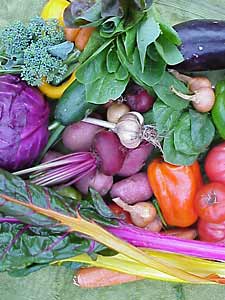Since vitamins are sensitive to environmental or atmospheric factors such as heat, air, humidity the coo must create literally an ideal atmosphere in the kitchen if he wants to retain the maximum nutrition in the food being cooked. While an ideal kitchen atmosphere will not totally prevent nutrition loss, it will certainly help minimize the problem.
Tips to help minimize the problem of nutrition reduction:

- Cut or shred vegetables with a sharp knife Vitamins A and C are reduced when vegetable tissue is bruised.
- Wash but do not soak fresh vegetables because this diminishes important Vitamins B and C.
- Cooking in copper pots (not pots with copper bottom) can destroy Vit. C, folic acid and Vit. E.
- Shorter cooking time less water will give you the most nutrients.
- Thiamine is especially vulnerable to heat and is also destroyed by refining and exposing to air and water.
- Zinc is lost in freezing and thawing.
- Prolonged exposure to light and heat reduces food's Vitamin B6 content.
- Vitamin A can be destroyed by frying food.
- Iodine is lost during thawing.
- Calcium, magnesium and riboflavin are lost during peeling.
- Pottasium, Vitamin B1 and folic acid are lost during cooking.








No comments:
Post a Comment